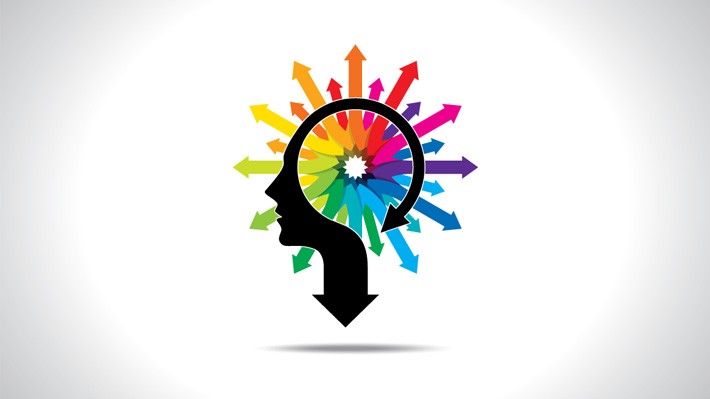How to use psychology in your content marketing
Confirmation bias draws our attention towards anything that backs up our pre-existing beliefs and opinions – and prompts us to dismiss anything else. People are naturally drawn to content that affirms their own viewpoint – and this can be a powerful asset in content marketing strategies, provided you can sensibly predict what your audience’s view is likely to be.
The power of confirmation bias is one of the reasons why an effective listening strategy has so much value to add to content marketing. Knowing what your audience is interested in is one thing – but knowing what their attitudes are likely to be can give you a real advantage in how you pitch your content in the feed. Effective listening strategies on LinkedIn include engaging with your Company Page or Showcase Page followers on key issues for your sector – and following relevant influencers for your industry whilst paying close attention to the comments their posts generate.
Confirmation bias can work either for or against your brand depending on the relationship your audience already has to you. When you know that you are dealing with a base of loyal customers or people who have engaged with your content in the past, featuring your brand name within Sponsored Content copy and headlines can help leverage confirmation bias to your advantage.
On the other hand, if you’re bidding for the attention of people with less awareness of your brand – or who have a potentially negative perception of it – then you’ll need to focus on the issues first, and work hard to align your headline with their likely attitudes. Enlisting confirmation bias can help you overcome some of the barriers that might exist to people engaging with your content.
When you’re using statistics within Sponsored Content headlines and copy, bear in mind that confirmation bias can lead different people to interpret those statistics in very different ways. Framing your data to guide your audience’s interpretation is often a worthwhile approach.
Confirmation bias can have a big impact on whether your content engages an audience’s attention in the first place. Cognitive dissonance has an equally big influence on whether that content has the effect you intend. It can create opportunities – but it also represents challenges that content strategy can play an important role in addressing.
Cognitive dissonance refers to the stress that a person feels in holding two conflicting points of view at the same time – and our automatic psychological instinct to try and resolve that situation as quickly as possible. Cognitive dissonance is stronger when there’s more at stake – and that makes it particularly important in B2B marketing, when decisions can have a big impact on the business’s bottom line and on the decision-maker’s future career.
Have you ever bought something expensive and been congratulated by the person who sold it to you on making the right choice? That sales rep understood the power of cognitive dissonance – and they were using it to make you a happier and more loyal customer. Spending more on something than we think we ought to is one of the classic causes of cognitive dissonance. Brands that help their customers to resolve it and provide on-going reassurance that a decision was a good one benefit from stronger brand loyalty and advocacy. Content has a vital role to play in this process.
It’s tempting for marketers to adopt a more sales-led approach in the later stages of the B2B buyer’s journey. However, the nature of cognitive dissonance means it’s just as important to keep adding value through content in the run-up to a buying decision – and following it. Here are some of the tactics that can help to reduce cognitive dissonance amongst people considering your brand:
- Helpful tips and advice that aren’t overtly selling your product
- Additional research from third parties that backs up the value of your product
- Case studies and testimonials that provide additional reassurance
It can be just as important to maintain a stream of supportive and value-adding content once someone has made the decision to buy with your brand. The more they invested in you, the stronger the potential for cognitive dissonance – so develop on-going content streams to reassure them the choice was the right one.
Cognitive dissonance can play an influential role earlier in B2B buyers’ journeys with your brand as well. When content plays with your audience’s expectations and prompts them to see your brand in a new light, it creates an initial cognitive dissonance that they will feel a psychological need to resolve. Make sure you use this window of opportunity with follow-up content that can resolve it in your favour – and complete the shift in perceptions.
Here are some content tactics that have been very effective in creating and leveraging cognitive dissonance for B2B marketers:
- Transparency, being honest about issues that audiences might not expect you to open up about
- Playing with expectations and then following up with content to back up the new point of view (this was a particularly effective strategy for CustomerGauge, a Net Promoter Score consultancy that drove great results questioning whether its audience should use NPS benchmarking sites)
- Driving advocacy and social proof through sharing, which can create a cognitive dissonance opportunity amongst those who may have had a negative view of your brand
“Consumers are faced with conflicting messages from influencers, media, and advertising that promote one over the other. Consumers, whose personal preferences and experiences match those shared by a large online community, find their decision-making process conflicted when faced with overwhelming social advocacy for the alternative. When marketers understand the logistics of cognitive dissonance, it can be used as an effective marketing strategy.”
Sam Fiorella
Confirmation bias and cognitive dissonance are just two of the powerful psychological forces that help hone your content marketing tactics and drive greater engagement amongst B2B audiences. Subscribe to our blog and watch this space for more ideas on how to use psychology to help increase your B2B content marketing effectiveness.
Related articles



